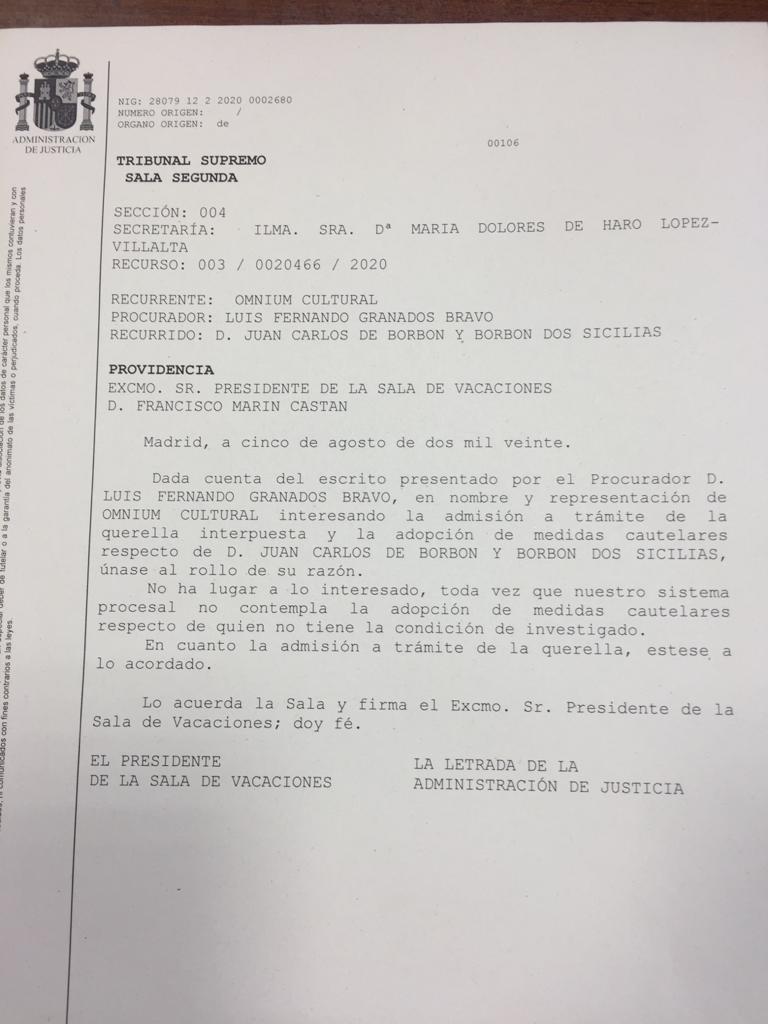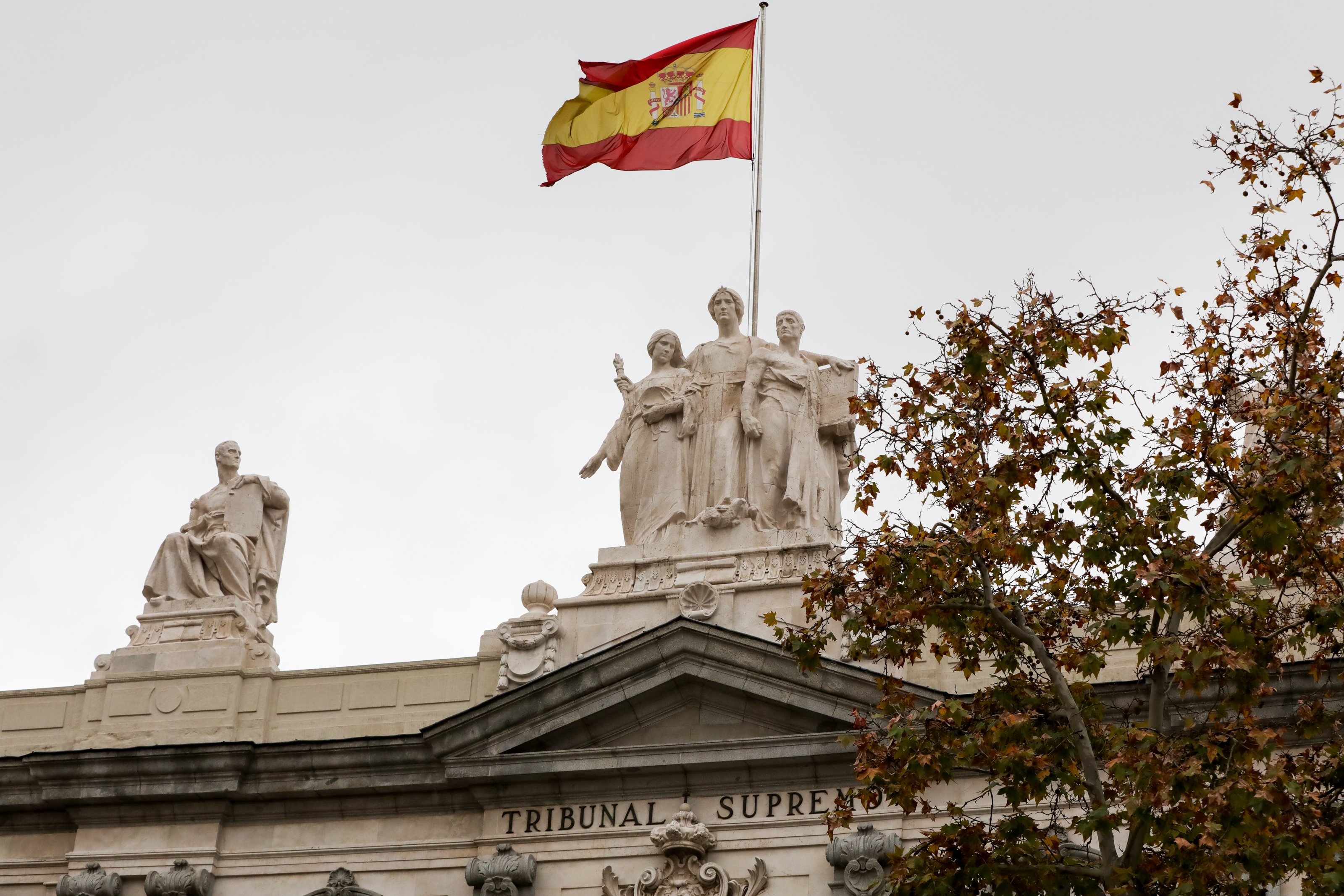Spain's Supreme Court has rejected a request that it take precautionary measures against former king Juan Carlos I to prevent him from evading Spanish justice with regard to accusations of corruption and money laundering. The judges' consideration of the case against the king emeritus, presented several weeks ago by the Catalan cultural association Òmnium, will still proceed, but the court ruled today that as Juan Carlos I is not under investigation in Spain at the moment, no urgent measures can be taken against him.
Legal services for the pro-independence association acted on Monday when it was known that the former head of state had decided to leave Spain, demanding measures be taken to avoid a possible flight from justice, given the evident "will to flee" that he himself had expressed in the letter he wrote to his son king Felipe VI.

Òmnium had denounced that the king emeritus was "fleeing the Spanish state with the connivance of the other state powers" and with a criminal complaint lodged against him pending - to be precise, the complaint that Òmnium itself presented to the Supreme Court on July 3rd for alleged corruption and money laundering by the former king. Part of the effect that Òmnium foresaw when it made this complaint was that the existing investigation of Juan Carlos's financial activities by Spanish prosecutors could be transformed into a full criminal procedure, which would create new legal implications for the person accused.
"They have made impunity into their letter of presentation to the world," commented imprisoned Òmnium president Jordi Cuixart in a tweet on Monday, reacting to "a head of state applauding the flight of someone who is corrupt", in reference to king Felipe VI's letter respecting his father's decision to leave Spain. "For justice, memory and dignity, let's win a future without subjects or Bourbons."
Un cap d'Estat aplaudint la fugida d'un corrupte; de la impunitat n'han fet carta de presentació al món. Per justícia, memòria i dignitat, guanyem un futur sense súbdits ni borbons#CoronaCiao#RepublicaCatalana pic.twitter.com/2NrYfCkXeD
— Jordi Cuixart (@jcuixart) August 3, 2020
The Òmnium complaint against Juan Carlos I
With regard to the substance of Òmnium's suit against Juan Carlos I, the Supreme Court judge Manuel Marchena has asked public prosecutors office to present their views on whether the complaint should be admitted for investigation. Thus, it will be up to the prosecutor's office to report whether it considers that sufficient evidence is provided to initiate criminal proceedings against the monarch. Some legal sources have explained to this newspaper that the quality of the complaint which Omnium presented would allow the prosecution to refuse to investigate it, given that it is supposedly based on press clippings.
Promotional spot for Ómnium's campaign to bring Juan Carlos I to justice: "Because it is corrupt, because it is anti-democratic, because we want a Catalan Republic, let's make it fall. Complaint against the Spanish monarchy."
This action from major Catalan cultural institution Òmnium is also one step in a campaign to denounce the "democratic failure" of the powers of the Spanish state. Deputy Òmnium leader Marcel Mauri says that the campaign is a response to the state's repression of the 1st October 2017 Catalan independence referendum and the "Supreme Court's shameful convictions" of leaders of the independence process, but it also sought to focus on the democratic deficits shown up during the coronavirus pandemic, with the Spanish government's recentralization of power and the state's "unashamed suffocation of liberties".

